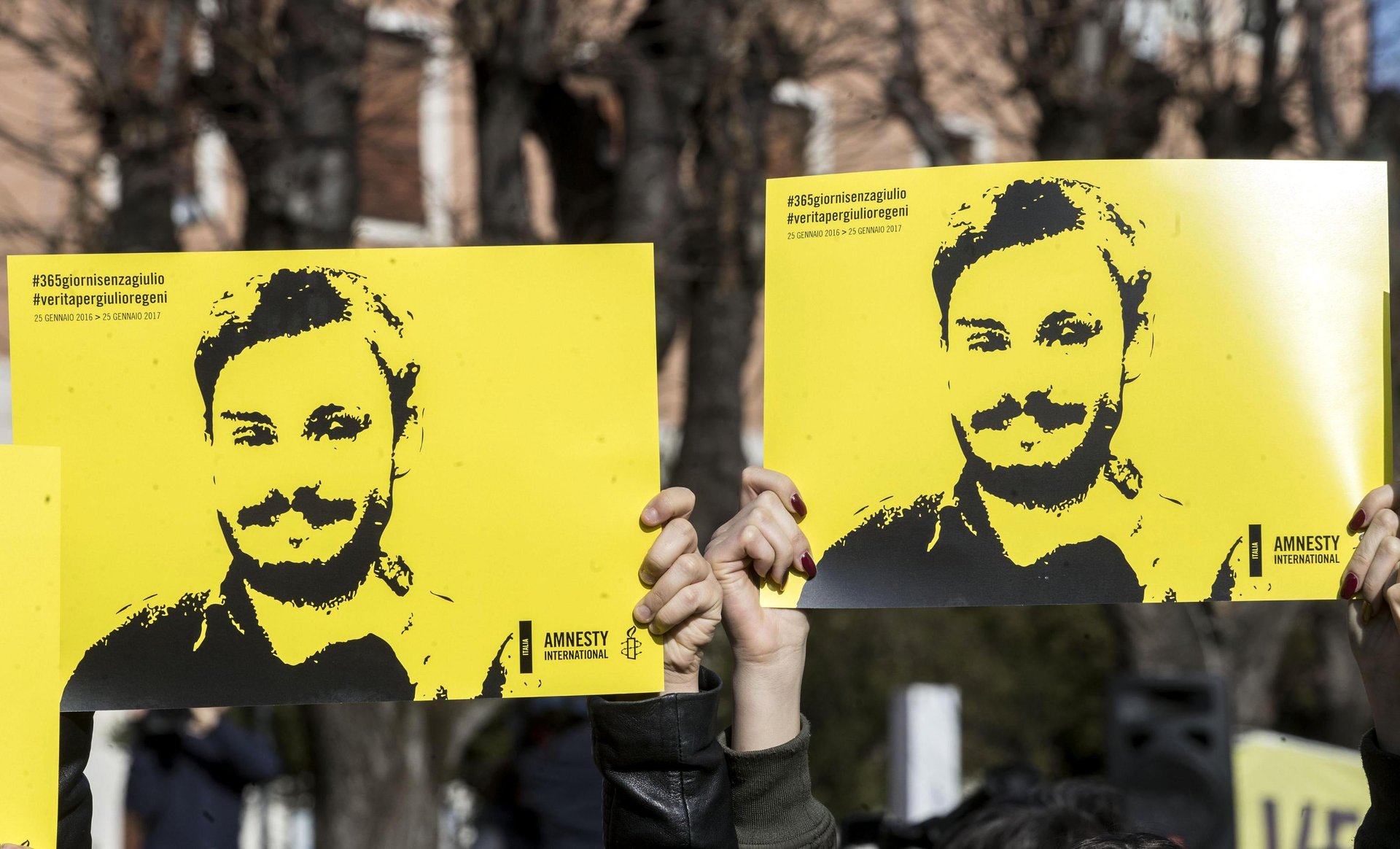UK universities are criticized for valuing “profit” over human rights in Egypt
Egypt’s crackdown on dissent continues to raise concerns worldwide.


Egypt’s crackdown on dissent continues to raise concerns worldwide.
More than 200 academics are now questioning the relationship between British and Egyptian universities, saying UK schools are overlooking academic freedom and human rights in pursuit of profit. In a damning letter to the Guardian, scholars from universities including Oxford, Cambridge, and King’s College London have decried British officials and university managers’ increasing push to explore higher education and research collaboration with the North African nation. These high-level partnerships are taking place, they said, amid increasing efforts to silence critics and clampdowns on civil rights, independent media, and trade unions.
The academics cite the case of Giulio Regeni, an Italian doctoral student at Cambridge, who disappeared and was later found dead in Cairo in 2016. Egyptian authorities, who first claimed he had been killed in a road accident, came to blame a criminal gang for abducting and killing him. Italian prosecutors have said the 28-year-old was under surveillance by Egyptian police and was killed because of his research on independent unions. No one has been arrested.

The letter comes over a month after a delegation of 11 British universities visited Egypt, facilitated by British officials, and signed deals to develop strategic academic partnerships. These included building international branch campuses, conducting collaborative research, applying for joint research funding, assisting with capacity building, and encouraging student- and staff-exchange programs. The signatories worry the universities won’t be able to “guarantee the safety or freedom of expression of their academic staff or students,” adding, “We suspect this is just a cynical branding exercise: selling degrees with the imprimatur of a UK university while remaining silent about the disappearance of academic critics and attacks on Egyptian students’ right to learn without fear.”
That sense of trepidation comes as president Abdel Fattah el-Sisi’s government broadens its crackdown on dissent. Like other African governments, authorities have also looked at the internet as a threat, blocking hundreds of websites including Medium and Huffington Post. New laws give the state powers to block social media accounts and penalize journalists deemed to be publishing “fake” news. Last year, human-rights groups noted Egypt was deporting Uyghur students with valid residency permits back to China, where they faced arbitrary detention and torture.
The academics said it was important UK universities share knowledge and promote debate abroad. Not, however, at the expense of state or political interference: “We welcome collaboration with our Egyptian academic colleagues, but we refuse to collude in masking human rights abuses in order to make short-term profits in the global education ‘market.’”